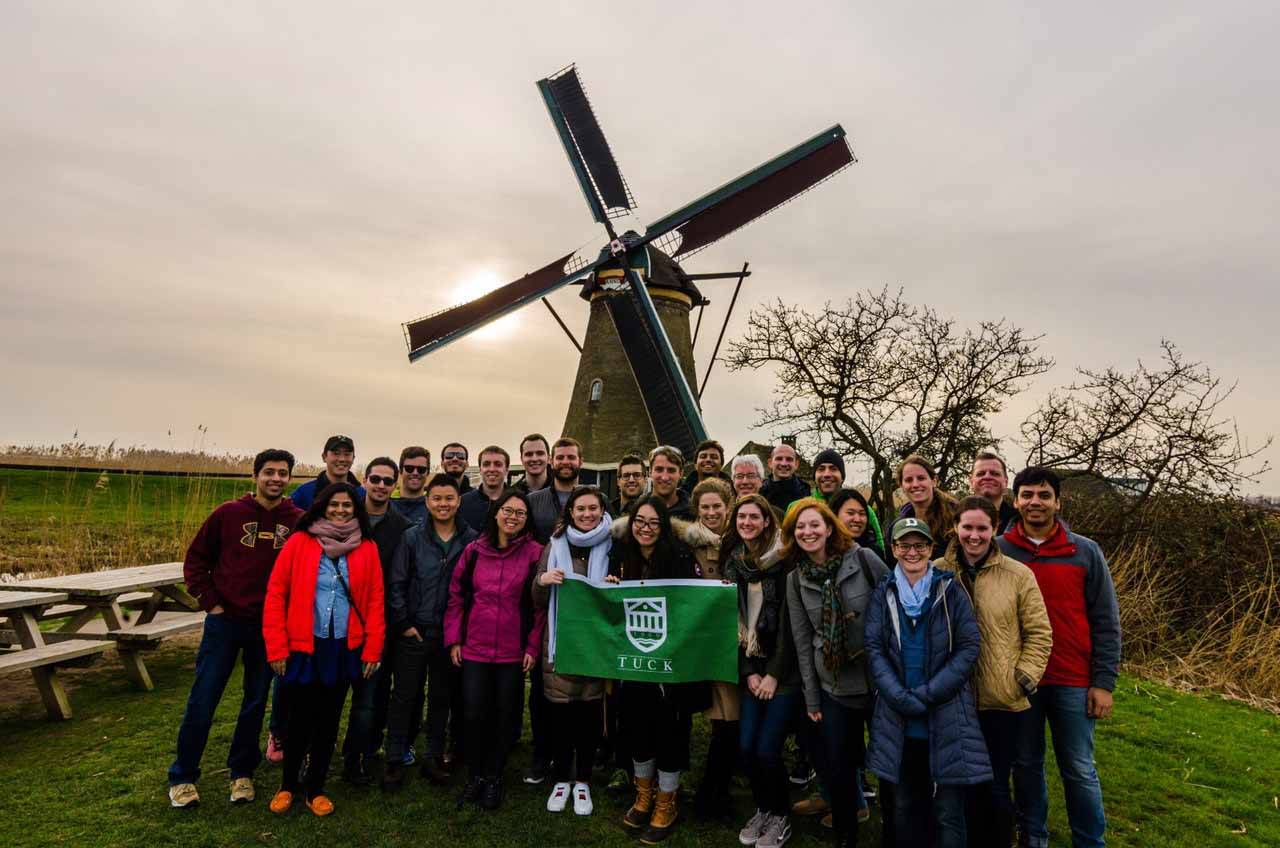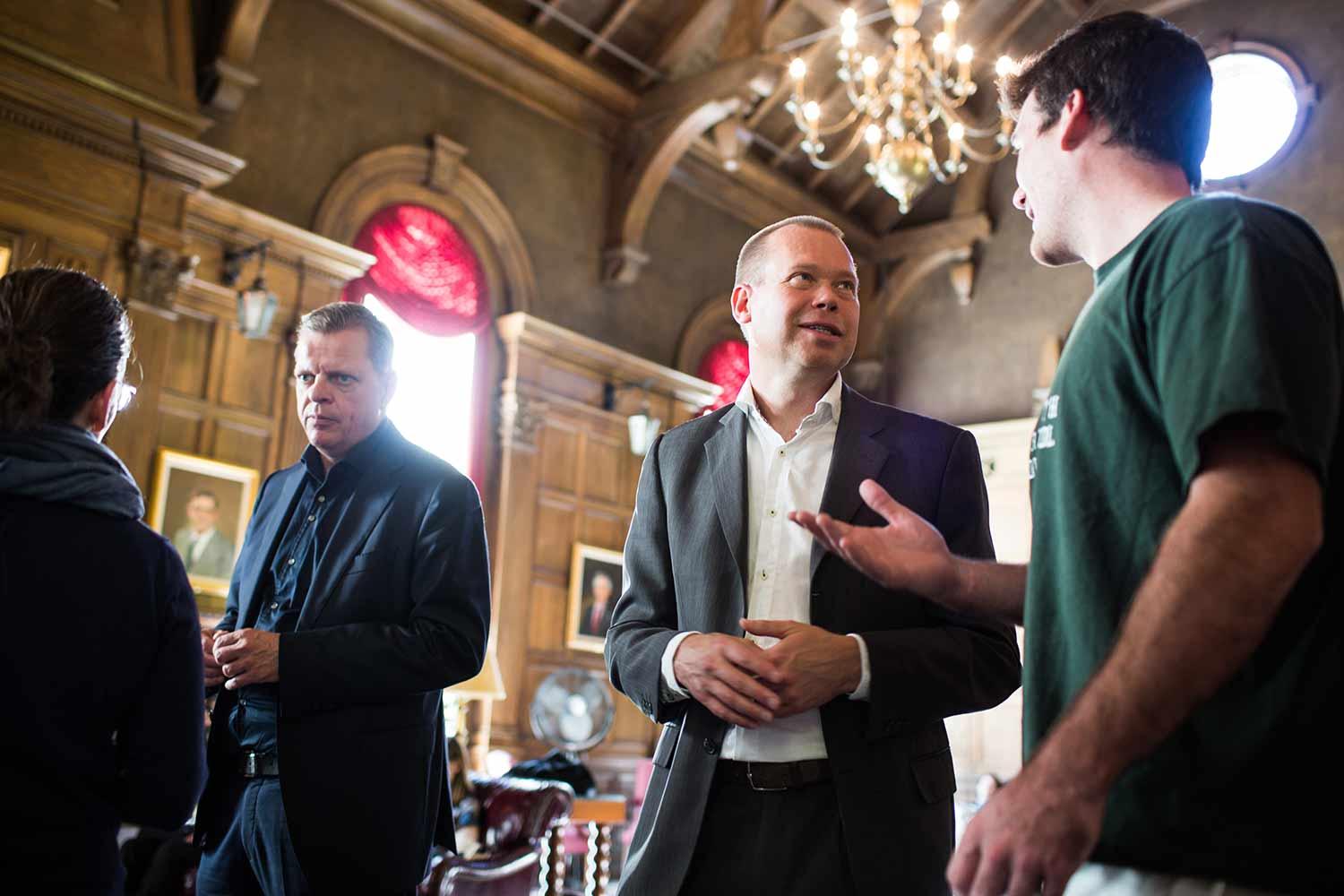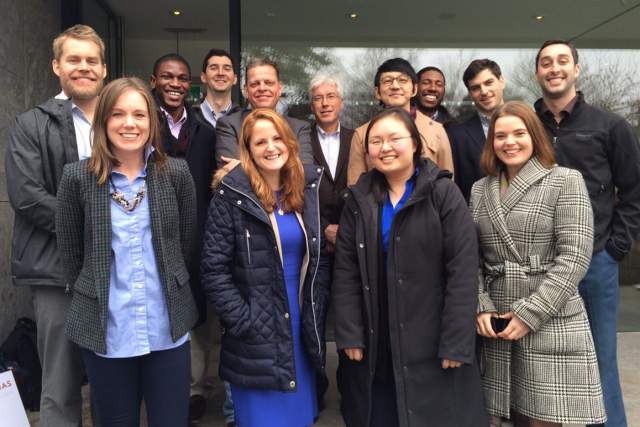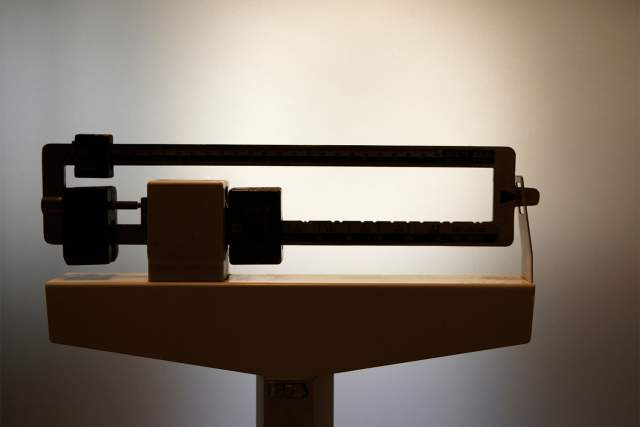Across Oceans, a Bond Over Health Care
Through a special partnership between Tuck and a business school in the Netherlands, students are swapping places to learn more about their host country’s health care system—and shared challenges and opportunities.

As part of the Tuck-TIAS partnership, students and professors from Tuck visit the Netherlands.
When Nardo van der Meer, a professor and physician from the TIAS School for Business and Society in the Netherlands, visited the Dartmouth campus in 2014, he was amazed by the dynamic health care collaboration he saw between professors, physicians, and administrators across campus. But he was also struck by something else—the surprising similarities between the U.S. and Dutch health care systems.
He was in Hanover to pitch an idea to Dartmouth and Tuck: He wanted to bring a group of his students from the Executive Master of Health Administration program at TIAS—which is the business school of Tilburg University and the Eindhoven University of Technology in the Netherlands—to the U.S. to learn more about the country's health care system.
But when van der Meer met with Bob Hansen, the Norman W. Martin 1925 Professor of Business Administration at Tuck and then senior associate dean, Hansen proposed an even better idea: Why not partner on an exchange program? Tuck could host a group of TIAS students on campus in the fall—tapping resources from Tuck, the Geisel School of Medicine, the Dartmouth Institute for Health Policy and Clinical Practice, and the Dartmouth-Hitchcock Medical Center—and TIAS could host a group of students in the Netherlands in the spring, leveraging its own local resources. The idea began to take shape with the mutual goal of having both cohorts of students learn about the similarities and differences of their host countries.
“Because of Dartmouth’s prominent position in health care, including the Dartmouth Institute, Tuck's own Healthcare Initiative and the Master of Health Care Delivery Science program, it is easy to put on a world-class program,” says Hansen.
In Health Care, Independence Versus Solidarity
What started as a simple idea has transformed into a robust health care exchange program for the two schools. Last September, for the third time, Tuck hosted van der Meer, fellow TIAS professor and physician Peter van der Voort, and 30 TIAS students for a week-long program. Led by Hansen and Suzie Rubin, executive director of the Healthcare Initiative, the course began in Boston with classroom sessions and visits to Massachusetts General Hospital and the Codman Square Health Center.

Rubin remembers a particularly well-timed moment when the group was on a Boston Duck Tour. When the driver learned that the audience was a group of Dutch health care students, he started talking about his experience with the Affordable Care Act. “He told us it was the first time in over 20 years of working that he had health insurance and could afford it,” says Rubin. “It couldn’t have been planned more perfectly. It really helped set the tone.”
Back in Hanover, Rubin and Hansen brought the TIAS students to Dartmouth-Hitchcock and to a smaller, community hospital, Alice Peck Day. Classroom sessions spanned topics across health care and business, including reform of elderly care and primary care, behavioral health, access, affordability, ethics, strategy and innovation. But beyond the classroom, what really resonated with the visiting students was America’s culture. “Live Free or Die,” New Hampshire’s motto, for example, reveals something important about the U.S. health care system.
“TIAS students really get a kick out of the motto,” laughs Hansen. “But in a way, that’s part of our system. It’s based on a lot of individual liberty consideration. It just goes to show, you can learn a lot about a country through its health care system.”
In the Netherlands on the other hand, Dutch solidarity is baked into its health care system—health insurance is mandatory for all citizens. Even refugees have access to insurance once they enter the country, and there is no premium for health insurance for children ages 0 – 18.
When Tuck students visit the Netherlands they find that the way we talk about solidarity is a beautiful thing. But in the U.S., TIAS students see independence—‘live free or die’—as a beautiful thing.
“In the Netherlands, we know that that the government is taking care of us. And when Tuck students visit the Netherlands they find that the way we talk about solidarity is a beautiful thing,” says van der Meer. “But in the U.S., TIAS students see independence—‘live free or die’—as a beautiful thing.”
A Unique Industry-Specific Global Course for Tuck Students
Hansen brought twelve students to the Netherlands in spring 2015. When Tuck announced a mandatory global requirement called TuckGO, Hansen and Rubin felt the exchange program dovetailed nicely with the new GIX courses, one of three experiential offerings that students can take to fulfill the requirement. And thus, the first ever industry-specific GIX was born. In the spring of 2016, Rubin and Hansen brought 24 students to the Netherlands. In the spring of 2017, they brought another 26.
The course gives students the opportunity to learn about a sector within the context of a different country, and how social, economic, and political factors shape both the structure and function of the sector. Together with Rubin and Hansen, TIAS designed a GIX for Tuck that helps students understand the Dutch health care system and how it compares to the U.S. system. Students have access to faculty, physicians, entrepreneurs, and business experts and discuss trends and challenges in Dutch health care including end-of-life care, drug pricing, innovations, health care management, and more.
The GIX allowed me to develop a broad view of how this industry is structured in different parts of the world.
Brazil native Daniel Rodrigues Bruzeguez T’17 came to Tuck with a passion for health care and the desire to make a long-term career shift into the industry. As an international student, he attended the GIX with hopes that he could test out his interest.
“The health care industry has such a unique structure in each country that it is difficult for an international student to gain a deeper knowledge in a short time,” says Bruzeguez. “Combining classes, conferences, and the GIX allowed me to develop a broad view of how this industry is structured in different parts of the world.”
The Tuck-TIAS Partnership
The programs are customized to the needs of the students, but another surprising benefit is the close relationship between the Tuck and TIAS faculty who share health care expertise. Whether in the U.S. or the Netherlands, Hansen, Rubin, van der Meer, and van der Voort often lead discussions together in the classroom, bouncing off of each other and politely challenging one another when the time is right.
“That’s a valuable part of the relationship,” says Hansen. “There’s a camaraderie. It’s not an arms-length transaction. Students pick up on that.”
The way you think about health care as a country, goes to the heart of what the country is.
At the end of the day, both sides have similar objectives: For students to gain greater insight into the challenges and potential solutions to the key issues of health care: access, quality, and cost. The only way to achieve that, says Hansen, is by understanding how other health-care systems work. The opportunity to travel and immerse yourself in the study of another system is invaluable, says Hansen.
“For anyone interested or involved in health care, I don’t think you can see enough country-based systems,” he says. “The way you think about health care as a country, goes to the heart of what the country is. You learn about the politics, culture, and history of a country through studying its health care. That’s what makes this partnership so strong, and we’re very much looking forward to the next round of exchanges.”

